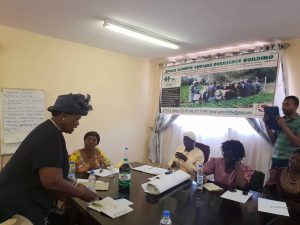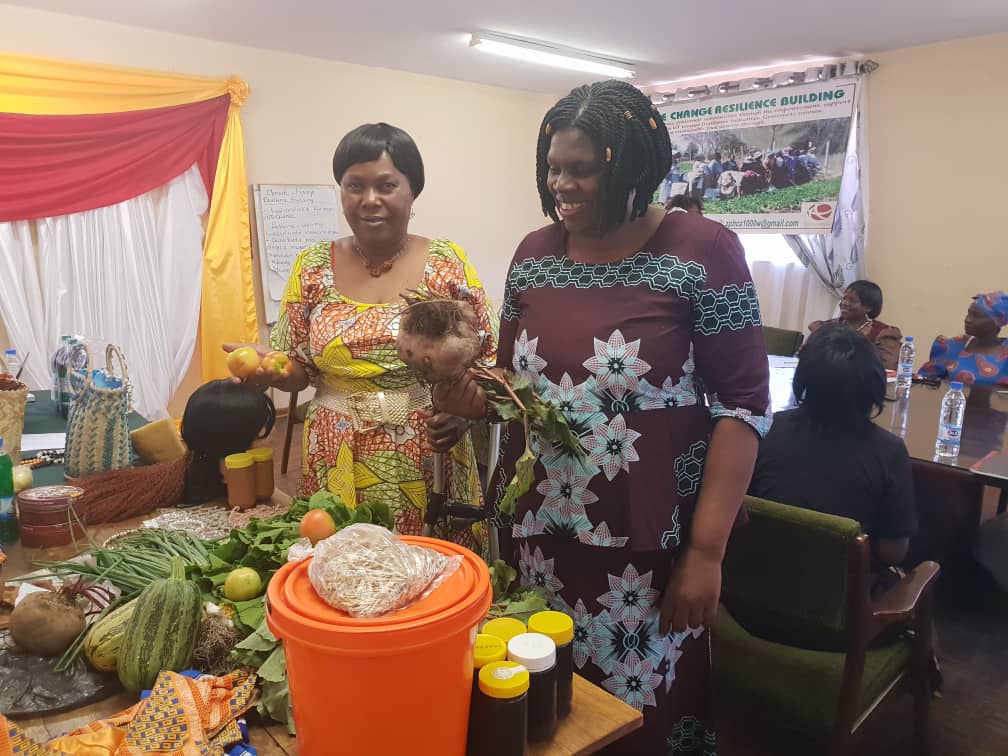By Byron Mutingwende
Grassroots Women under the auspices of the Zimbabwe Parents of Handicapped Children Association (ZPHCA) have vowed to ensure food security beyond the adverse effects of climate change.
“Grassroots Women from Harare and Mashonaland East Provinces are implementing strategies to ensure food security and nutrition in spite of the adverse effects of climate change in a sustainable manner. ZPHCA has a long history of working to improve the wellbeing of children living with disabilities at various levels. However, the Resilience Building Project is grassroots women specific.
“ZPHCA in partnership with Huairou Commission and SIDA, is implementing the Resilience Building Project for the Period between January 2017 and December 2019. The major objective of the Climate Change Resilience Building Project is to initiate innovative and sustainable grassroots women led livelihoods projects to ensure food security beyond the changing climates,” said Theresa Makwara, the ZPHCA National Coordinator at a women’s summit held in Waterfalls on Tuesday 13 November 2018.
ZPHCA has successfully developed and currently Implementing its Climate Change Resilience Building Model. The Model remains a consolidation of its Resilience Building Best Practices, Lessons Learnt, Challenges encountered, Opportunities perceived and Sustainability Strategies adopted over the years.
ZPHCA is working directly with 100 Grassroots Women across Harare, Chitungwiza, Dema Rural, Epworth and Domboshawa Communities replicating the ZPHCA Resilience Building Model.
Lizzy Gonye, the Head of Gonye Chinamhora Village in Dombashava said the resilience-building project was transforming smallholder farmers from merely growing food for family consumption but for sale to markets in their localities and beyond.

“As Grassroots Women from Murape Kubatana Ward 4 in Domboshaya we work in four groups namely Taita, Kubatana, Mumu and Jekesa. All of us are farmers working directly with agricultural extension officers and officials from the Zimbabwe Farmers’ Union. We have diversified from horticulture into livestock farming where we rear chickens, rabbits, guinea-fowls, turkeys and pigs for sale.
“We have also incorporated art and craft where we make beads and bed and chair covers for sale. We also teach our members tailoring and knitting. To learn and share best practices we participate at village, ward, district, provincial and national agricultural shows. In doing all this, we include village heads, headmen chiefs and all the traditional leadership who in turn avail land for us,” Village Head Gonye said.
Veronica Kanyongo Ngwerume, the Director of Seke Rural Home Based Care who is also part of the Resilience Building project said the summit was well organised in that it brought together women from different districts at one place to share their experiences, challenges and successes in resilience building.
“This project has taught us many skills. We started with the sack-grown potato project that we exchanged with ZPHCA. The project saw stakeholders digging wells and drilling boreholes to water our crops. On energy saving initiatives we were taught to make use of tsotso stoves that use maize stalks, leaves or cow-dung.
“There are village environmental committees in Seke peri-urban that work to guard against environmental degradation by sand poachers. We also work with households with HIV-positive people in growing nutritious vegetables for a balanced diet and to boost nutrition,” Mrs Ngwerume said.
Phillipa Banet from the Epworth Solani Pakuwirirana Women’s Grassroots Group comprising 60 mothers of children with disabilities said they were running an Internal Savings and Credit Facility and participated in Peer Educators Training and Peer Exchange Visits.
The project is bearing fruit in that the women are now able to overcome climate change induced gender-based violence, food insecurity and marginalisation of grassroots women in decision making.
Other livelihood enhancing projects include vegetable gardening where a variety of vegetables including onions, tomatoes and beetroot are being grown. The women have gone into fish farming and value addition where they produce jam from the masawu indigenous fruits from the forest. They have also established Green Marketing Stalls and Community Banks.
It has emerged that Grassroots Women can become important contributors and partners in finding the lasting solutions to Climate Change. Any effective measure to overcome Climate Change induced food insecurity requires effective partnerships and knowledge sharing. Success is not only about money, it is also about partnerships, engagement, strengthening organisations and learning.
